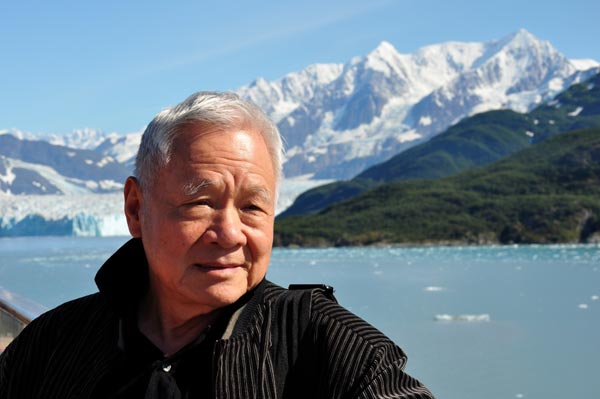 |
|
Poet Ya Hsien's writing career has spanned for about six decades, and he says the best way to refine poetry is to refine the poet's mind and behavior. [Photo provided to China Daily] |
Celebrated poet Ya Hsien has lived a colorful life marked by the tumultuous events of the past century. But it is his idyllic childhood in North China that provides the inspiration for his work. Mei Jia reports.
When a 17-year-old Ya Hsien waved goodbye to his mother in his hometown of Nanyang, Henan province, to join the Kuomintang army heading to Taiwan in 1949, he didn't expect the departure would be the last time they saw each other. "I left as if I was going on a hike with my schoolmates, not knowing that I would be cut off from correspondence with the mainland and lose contact with my mother for decades," the poet says. "I was only able to return home some 42 years later. But when I returned, I found my hometown unfamiliar and my mother long passed away."
In the years of separation from home and family, writing poems offered him a way to express his nostalgia and remember his hometown. His most productive writing period in the 1950s and '60s earned him quite a reputation. Today he is hailed as a phenomenal poet who bridges the time between Ai Qing in the 1930s and '40s and the post-1970s period of Bei Dao.
He was recently awarded the Zhongkun International Poetry Prize 2013 from Peking University Institute of Poetry Studies. The biannual prize recognizes the oeuvre of both a Chinese and a foreign poet with 80,000 yuan ($13,100). Previous winners include Zhai Yongming, Bei Dao, Syrian Adonis and Japan's Shuntaro Tanikawa.
Sitting in a cafe at Peking University, the birthplace of contemporary Chinese poetry, or New Poetry as it is also called, the 81-year-old poet becomes sentimental recalling his homecoming after many years only to find his mother had died.
"That is the biggest pain in my life," he says, struggling to maintain his usual gentle calm.
He is not a prolific poet, but then neither was Walt Whitman (1819-92), who spent his life polishing Leaves of Grass, Ya Hsien says.
Hong Zicheng, a professor with Peking University, believes Ya excels in quality, not quantity.
Hong says all of Ya Hsien's 90-odd poems are in a sense, different versions of his most important work Abyss (the poem is available in English in a translation by John J. S. Balcom).
"With childhood memories of living in the North China countryside his major source of material, Ya Hsien successfully infuses both political and daily life within the spectrum of history, giving them significance and strength," Hong says.
|
|
|
|
|
|
|
|
